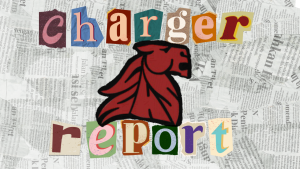Escapism: Salvation or Broken Crutch?
January 17, 2022
Adamant readers of mine probably know that I have a major writing addiction. By this point, that addiction has produced over a million words over the course of approximately two years. This is great and all, but… why have I written so much? “Because I wanted to,” simply isn’t a valid reason for such an absurd amount of writing. So… Why?
Aside from a few reasons, several of which I have mentioned throughout my time on Chatty Matters and many more of which I have not yet revealed to the public eye, I believe that the primary reason for my constant writing is escapism.
According to the search query “Define escapism,” escapism is defined as, “the tendency to seek distraction and relief from unpleasant realities, especially by seeking entertainment or engaging in fantasy.” As with many people during the start of the infamous COVID-19 quarantine, this definition describes my actions to a T. Of course, quarantine wasn’t the only reason for the sudden start of writing, but it was a major motivator for the unconscious need to escape from the uncomfortable reality that was presented at the time.
And now, we reach the crux of why I’m covering escapism today: does it hurt more than it helps? Sure, escapism may provide relief from stress and reality in the moment, but would it have been more beneficial to simply face reality?
The defensive argument for escapism will cite how necessary it is for day-to-day life. Even without that argument (the validity of which may vary from person to person), I would go so far as to claim that my form of escapism has helped me process and come to a conclusion in regards to multiple issues that are relevant to my daily life, even if the content of the writing is entirely fictional.
Meanwhile, the argument against escapism will claim that it harms far more than it could ever help. Since the main argument against escapism tends to cite more serious cases – such as refuting a loved one’s death – minor cases, such as sitting back and watching some television after a long day at work, are less prone to argumentative weaknesses. In the case of those more serious situations, however, having to come to terms with reality will ultimately cause the protective barriers that were created by the escapism to crumble at some point. As time progresses in these scenarios, escapism may become a way of life, perhaps even going so far as to lead to a person’s inability to distinguish reality from fantasy. It is, of course, important to note that such cases are incredibly rare and usually reserved for severe scenarios in which coming to terms with reality could psychologically destroy the person in question.
So, is escapism a salvation for the common man or is it a broken crutch that will only serve to be a hindrance the longer it’s used? As with just about everything else in the world, the answer to that question appears to be moderation. At the end of the day, escapism is a tool to assist one’s lifestyle, not the other way around.
Still, I think all of us can agree that taking a few days of life off every once in a while to catch up on that show we haven’t had the time to watch is quite simply a glorious experience.








